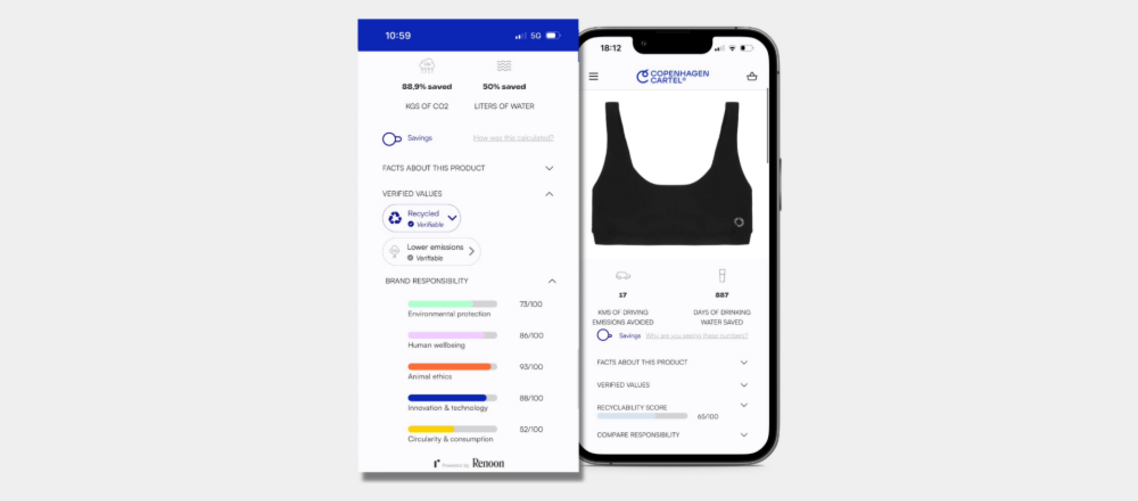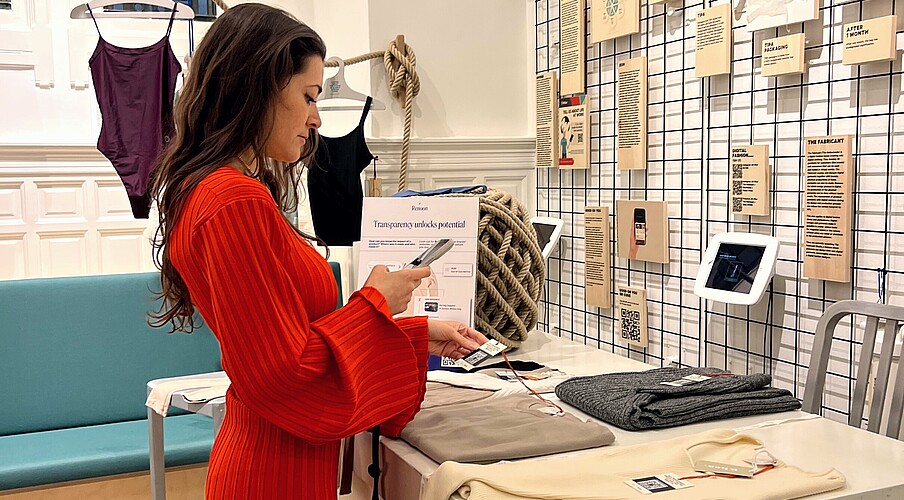“The case centres on the challenges facing modern tech platforms. Even if the platform succeeds at the first challenge facing any business – identifying and creating sufficient customer value for the buyers and sellers interacting on their platform – there is no guarantee they can also navigate the second challenge, extracting sufficient value for the platform in return. The case challenges students to consider different ways tech platforms can create and extract value, leveraging the combined powers of business model adaptation, technological innovation and customer orientation in the exciting and fast-moving context of sustainable fashion.” — Prof. Steven Sweldens of RSM’s department of Marketing Management and the lead author of the case.
Renoon has initially operated as a B2B2C platform to enable users to discover fashion that aligns with their sustainability values. However, its commission-based revenue model first proved unreliable. This prompted co-founders Iris Skrami and Piero Puttini to explore alternative business models to enhance their platform’s commercial viability while staying true to their sustainability mission.
Today, the case Renoon: Reinventing Shopping for Sustainable Fashion challenges students to explore two potential solutions for Renoon:
- How to become a media company that produces sustainability-focused content.
- How to transform into a reseller which directly sells fashion products to earn higher margins.
Students studying this case are also encouraged to develop alternative business models using creative and innovative ideas.
A unique case
This case integrates Renoon’s ethos of transparency with insights from marketing, sustainability and platform innovation, and it offers multifaceted and immersive learning insights that challenge students to grapple with the complexities of sustainable innovation in the fashion industry.
Included in the case are supporting materials such as an audiovisual material, extended teaching note, a PowerPoint deck for instructors, example lectures, pre-class surveys, and a short video about the business solution that was ultimately adopted by the company.
Case studies are commonly used for educational purposes. A teaching case serves as a snapshot of a real-life situation to present a challenge that an organisation has faced. Cases prompt students to envision themselves in the role of the decision-makers to help formulate effective solutions.
Those who want to know more about the Renoon: Reinventing Shopping for Sustainable Fashion teaching case and its full set of supporting materials can gain access here. To review further multimedia cases, please go here.
Learning objectives
The case highlights a key challenge for sustainability-focused marketers and entrepreneurs: creating value for consumers does not guarantee profitability while staying true to a mission.
By engaging with the case, students learn the following:
1. Understand how a firm's customer orientation impacts profitability.
2. Explore monetisation strategies for platforms, including balancing user growth and technology.
3. Analyse consumer perceptions of sustainability and how to leverage them for value creation.
4. Navigate the challenges of scaling a tech business with a sustainability focus.
Case Development Centre
RSM’s Case Development Centre (www.rsm.nl/cdc) operates as part of the school's Impact and Engagement unit. The CDC is distinguished in Europe as one of the few organisations to specialise in case development. Made available through esteemed publishers such as Ivey Publishing, Harvard Business Publishing, SAGE Publishing, and the Case Centre, RSM’s cases are widely used by various universities and organisations worldwide. Several CDC cases have won international prizes and have been featured in articles in prominent publications like the Financial Times and Harvard Business Review.


